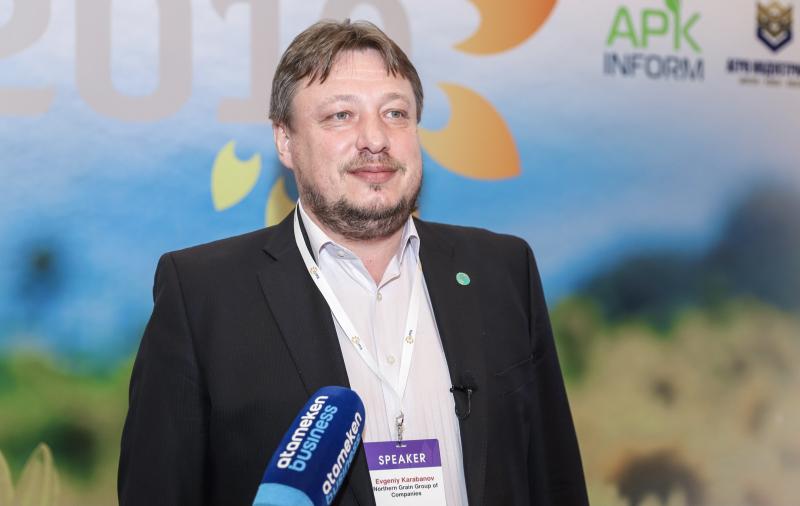
Spring is coming, and it means that very soon the high season will begin for the Kazakhstan farmers. The current sowing campaign will inevitably be influenced by trends of the past "corona-crisis" year. The main question is how strong their impact will be.
In the interview to the World of NAN portal Yevgeniy Karabanov, an expert, the official representative of ALE "Grain Union of Kazakhstan", the founder of Northern Grain Group of Companies, spoke about what problems can Kazakh farmers expect during the upcoming sowing campaign, what crops will be profitable to grow, and what trends will dominate the global food market in the coming years.
In recent years, there have been more and more talks about the fact that the state of winter crops this year may be unsatisfactory because of the lack of moisture. Farmers in Russia are especially at risk of this. How is the situation in our country?
- The main area under winter crops belongs to the southern regions of our country, so they do not dominate our sowing area. The southern part of the country also has very different conditions: it is the absence of a proper snow cover in some places, in some places there were frosts. Therefore, it is too early to say. I think at the end of March we will be able to assess the state of our winter crops.
Let's talk about the conditions under which Kazakh farmers are approaching the sowing season. What is the situation with seeds?
- Generally speaking, we have formed a seed fund. There is a program for subsidization of seeds, so I think there should be no issues concerning seed fund.
And what is the situation with means of plants protection?
- As for plant protection products, there is one negative factor - technical regulations that came into force on them. In July 2020 it was approved by order of the Ministry of Agriculture. According to the regulation, plant protection products imported from abroad must be re-certified, despite having registration. In this way they want to fight against substandard products, often contraband. But the question arises here, that in Kazakhstan there are currently only two laboratories able to conduct analysis of the active substance of drugs, and not for all types of drugs.
Grain Union of Kazakhstan has already written a letter to the Ministry of Agriculture on this issue. The Ministry of Agriculture said that they will change the date of entry of this technical regulation, but so far there has been no big movement in this direction. As far as I know, changes in the order are now being coordinated in other agencies. This point will definitely cause difficulties, because first of all there is a small number of laboratories, and secondly, as I said, there is no possibility to conduct tests for a number of drugs. That is, there are no devices, no methods, and no trained personnel. But this is not true for all types, but for some of them. Naturally, this could create certain problems.
Does this mean that there may be a shortage of plant protection products?
- Yes, this could lead to shortages of certain groups of drugs. This applies mainly to drugs supplied from abroad, the formulation of which is not produced in Kazakhstan. We hope that the Ministry of Agriculture will have time to regulate this issue before the main stage of plant protection products delivery (March-April).
How ready are farmers for the sowing season in terms of agricultural equipment?
- In terms of equipment, I think we are generally prepared, but, of course, this notorious utilization fee greatly hinders the renewal of the equipment. Although against the high prices of agricultural products this year many farmers wanted to partially renew their fleet of equipment, but the utilization fee strongly hinders this process. But despite this, many farmers are still renewing their fleet. Naturally, in quantitative terms, this is probably not the numbers that it should be. Renewal should be at least 6%, and if you look at the latest figures, in 2019 it was up to 3%, for 2020 I have not yet seen the statistics.
Will the pandemic affect the upcoming planting season?
- No one knows how the epidemiological situation will develop further. But, probably, our sanitary inspectors, who have already learned their lesson from the last year, will make more balanced decisions. At least, we hope so.
Last year there were a lot of news about some products getting stuck at the border and difficulties with deliveries from abroad. How do you think it’s going to be in that regard in 2021?
-I think this problem is less of a problem now because, whatever the case may be, the traffic has gotten organized. Of course, there are problems there, for example, with importation from a number of countries, particularly China. But as far as I know, with Europe and Russia there are no such big problems yet.
Once again, in the end, everything will depend on the actions of our sanitary doctors. And their actions lie in the development of the epidemiological situation.
What about farmers who want to diversify their crops? What to sow this year?
- The question of diversification is quite ambiguous. Everyone should approach it not only on the basis of their desires, considering high prices on flax and sunflower. There is a question of preparedness of land and specialists, availability of equipment, technological capabilities. It is a whole complex. We must also take into account the situation on the seed market, crop rotation, because you can not sow sunflower on sunflower, flax on flax and so on.
I can say that almost all crops grown in Kazakhstan now have very attractive prices. I think that next year the same situation will continue, because according to estimates of international experts, in particular Standard and Poor's Global Platts, high food prices in the world will remain for the next two years.
This trend is due to the fact that countries - large consumers - are creating reserves. This is a consequence of worsening epidemiological situation and quarantine, which caused disruption of supplies. The second point is related to the impact of natural factors, in particular global warming, such as El Niño in the southern hemisphere, which can lead to a drop in production. Another negative factor is the same export duties and quotas imposed in Russia. All of this, combined, will lead to countries building up some kind of reserves and stockpiles.
An increase in the price of oil will also affect all markets. The resurgence in China's pork industry has already led to very large purchases of corn by China on the world market. And corn is linked to other grains. The price of sunflowers, other oilseeds, and refined products has risen sharply, not only in our country, but also on the world market, because of the weak harvest.
All these factors will contribute to maintenance of rather high prices for agricultural products. This is certainly a plus for our producers. I think they should take advantage of this situation, not try to play experiments, but simply grow what they are technologically prepared for, what they are good at. In other words, all products will be in demand.
Could you give a recommendation on what farmers should concentrate their efforts on before the sowing season?
- First of all, on seeds, on readiness of machinery. In light of what I said on crop protection means, you should also pay attention to this issue: discuss with your suppliers the feasibility of supply of some or other preparations. If in doubt, you can try to find replacements and similar products.
And, of course, we must try to organize the sowing campaign and summer plant protection work in the best possible way, because it is not clear what prospects we will have in terms of natural and climatic factors. At the moment the situation does not look promising: dry autumn, i.e. low accumulation of autumn moisture, insufficient amount of snow in winter in many regions, in particular in Northern Kazakhstan, where the main areas of grain and oilseed crops are located. All this causes certain concerns. That's why it is important to organize the sowing campaign as soon as possible, which will give the desired result.
Thanks for the interview!






































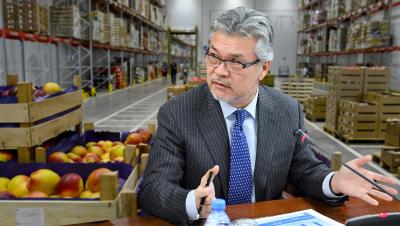

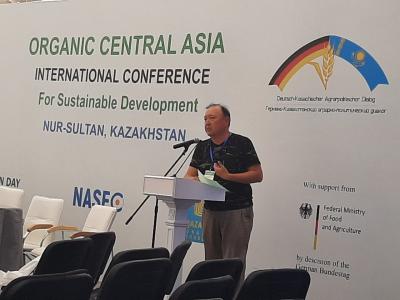
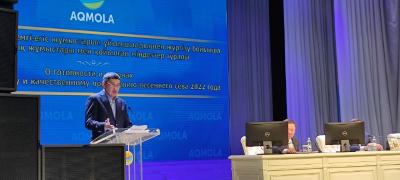
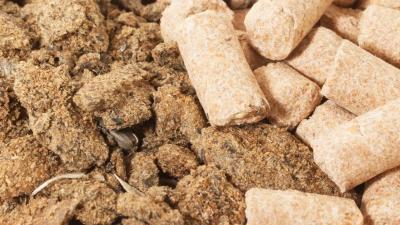

Обсуждение